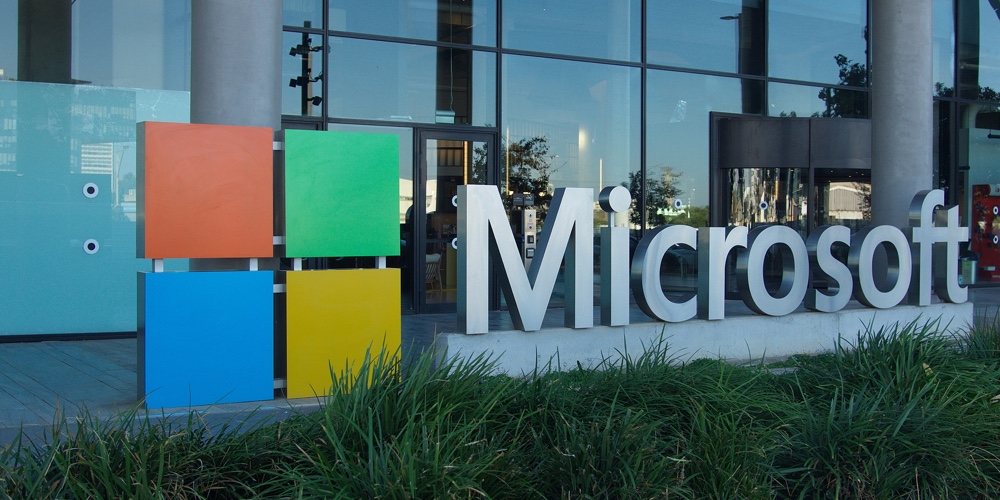Introducing your new Copilot – What credit unions need to know about Microsoft’s new AI

After ChaptGPT’s release in November of 2022, many of the major tech companies started racing to release their own AI. Google released Bard, Meta released Sandbox and now Microsoft has begun rolling out Copilot.
For credit unions, this may not seem like a concern – many will want to wait to start adopting AI technologies until they’re better tested and regulated. But AI is beginning to make itself known in every aspect of daily life, for better or for worse, and Copilot in particular will have huge impacts on the cloud and anyone who uses the Microsoft suite of products.
What is Copilot?
Copilot is the next evolution of personal assistant AIs such as Siri and Alexa. Copilot integrates with any Microsoft product – including Teams, Word, Outlook and others – to help streamline your work process. It can provide services such as:
- Attending meetings on your behalf and providing notes summarizing the meeting and any action items
- Providing a summary of a webpage or email
- Drafting email replies
- Providing a first draft in Word or revisions of an existing draft
- Redesigning PowerPoint slides after being provided with a prompt
- Analyzing trends in Excel and creating data visualizations
- And more
In short, Copilot is designed to improve efficiency at work, especially when it comes to busy work. Of course, there will be the potential to abuse these functionalities; some employees may use the virtual meeting attendance option as an excuse to skip meetings or over-rely on the summary function in outlook and miss important aspects the AI didn’t pick up.
Preparing for Copilot
Microsoft has just announced that the AI-powered version of the Microsoft suite is available for $30.00 a month. And while the full version is available for purchase, certain aspects have already been incorporated into base-level Microsoft products – have you noticed an email link suddenly opening in Microsoft Edge by default? How about the sidebar in Edge that has a tab to view your email? Changes like this are fairly small and unobtrusive (though maybe a bit annoying, if you’re a Google Chrome user), but they may be an indication of what is to come, if Microsoft elects to continue adding AI components to the basic version of the Microsoft Suite. Keep an eye on your Microsoft Suite and what permissions and features are added and turned on.
Since Copilot is coming quickly and certain elements have been auto enabled in the basic version, it’s a good idea to create an AI policy for your credit union that considers Copilots’ capabilities and creates clear rules around how and when, if at all, they can be used.
When creating policies, consider:
- When will it be appropriate for employees to use AI? Will your credit union allow the virtual meeting attendance or not? Can it be used in word to create first drafts of proposals? Consider the functionalities now and determine which ones are and are not appropriate.
- Are there topics that should be left to the humans? Copilot might be fine for drafting a quick email response to a coworker, but do you want it handling member data?
- How will you measure over-reliance on Copilot? At what point has an employee virtually attended too many meetings or used Copilot to draft too many documents? How can you ensure actual employees are reviewing email or document drafts before submitting them as final?
Security concerns with generative AI
Security is a top concern for credit unions, and Copilot should definitely be carefully considered. A common concern with generative AI in particular is that it learns from the content it scans. With Copilot being integrated into the Microsoft suite, it will have access to all data stored in Sharepoint and OneDrive, including any sensitive or member data stored there. Microsoft has committed to keeping Copilot data secure within the context of the customer, however, more time is needed to see how company data will affect the operation of Copilot within their organization. Credit unions will need to evaluate how the use of that data fits into their data governance policies and will want to evaluate creating a policy on how employees can use Copilot and other generative AI systems.
Should credit unions use Generative AI?
When it comes to generative AI, many credit unions will likely prefer to wait before they start incorporating it into their systems. But with the speed with which this technology is developing, many of us may find AI incorporated into the technologies we already use before we’re ready. Copilot is an excellent example of this: Currently, it’s only available to those willing to pay for early access, but it will soon become a standard part of Microsoft 365 subscriptions.
While your credit union may not want to start using AI for daily tasks, you still need to review and update your policies surrounding AI, as it will likely make its way into your credit union sooner rather than later. And for those credit unions who are willing to be early adopters and start incorporating AI sooner, they may find they have an advantage as the technology continues to develop and gain greater functionality.
So when it comes to Copilot, our best advice is to start preparing now. Educate yourself on what the functionalities will be and start updating your credit union’s policies accordingly. Even if your credit union doesn’t intend to use it, it’s best to document that and set rules with employees.
Co-author: Shane Butcher





